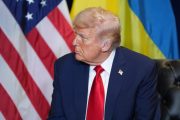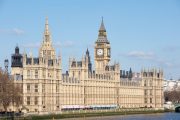In fact, when the Tea Party talks of liberty, the usual establishment response is that this is some code word for racism or xenophobia or religious fundamentalism. Among the multi-party nations of the world, very few can be considered dedicated to liberty. In America, the Libertarian Party has staked out that territory, although the Tea Party has brought many more Republicans into the camp of liberty.
Outside America, there are few parties that win elections championing liberty. Canada will have a general election in a few weeks. Stephen Harper’s Conservative Party comes closest to a party of liberty, but a brief review of its official website shows just how far even the Conservative Party is from true liberty. Here are some of the issues considered worthy of note by that party: adult fitness tax credit, the Lower Churchill clean air project, the International Day for the Elimination of Discrimination, Youth Gang Prevention Fund, Funding to Promote Math and Science — and so on.
The Conservative Party of the United Kingdom is no better. Although it is more liberty-oriented than the Labour Party, the Liberal Party, or the various nationalist parties, this one passage about the party’s attitude toward climate change reveals much: “The Government believes that climate change is one of the gravest threats we face, and that urgent action at home and abroad is required. We need to use a wide range of levers to cut carbon emissions, decarbonise the economy and support the creation of new green jobs and technologies.” An official statement regarding the National Health Service declares: “We are committed to an NHS that is free at the point of use and available to everyone based on need, not the ability to pay.”
One exception, historically, has been the Free Democratic Party of Germany (FDP). The definition given to this political party is “classical liberalism.” That means it favors small and nonintrusive government in economic and social matters. The party advocates a simplified flat tax, deregulation, privatization, reduction of the national debt, and an ending of business subsidies. On the energy front, the party supports coal, oil, and nuclear energy, and opposes the phasing out of nuclear power. The Free Democratic Party attitude toward social policy is summed up in their slogan, “As much government as necessary, as little government as possible,” and it promotes “creating and maintaining the freedom of the individual.”
Historically, the Free Democratic Party has been the third largest party in German politics. Usually it has formed coalition governments with the Christian Democratic Party/Christian Social Union. The Christian Democrats and Free Democrats currently form a majority in the Bundestag, allowing Angela Merkel to govern with a majority in that house of the German national legislature. The leader of this junior partner in the coalition government has historically gotten the Foreign Ministry, and also been Deputy Chancellor. Guido Westerwelle, the head of the Free Democratic Party, had held those posts under Merkel’s current government. Westerwelle, however, has just resigned as head of the Free Democratic Party and also as Deputy Chancellor, although he remained Foreign Minister for Germany as part of Merkel’s coalition government. His party will hold a party congress next month and will choose a new leader.
In the 2009 general election that allowed Merkel’s Christian Democrats to join with their traditional FDP ally, instead of the Social Democrats (the principal socialist party in Germany), the FDP did quite well, polling 14.6 percent of the vote nationally. Elections since then, however, have told a different story. In the Baden-Wuerttemberg election in March 2009, the FDP polled only 5.3 percent of the vote in that traditionally pro-business state of Germany. Merkel’s Christian Democrats also fared poorly, receiving only 39 percent of the vote. As a consequence, these two parties combined lacked the power to form a government in that state for the first time in 58 years. The FDP did even worse in the state elections in Rhineland-Palatinate, another state with a great deal of industry and commerce. Its 4.2 percent showing was so small that the Free Democrats will not even have representation in the state parliament.
Some of the problems faced by the FDR are connected with Westerwelle’s foreign policy stands, such as aligning Germany with Russia and China at the United Nations. Part of the problem, however, has been the confusing signals sent by the Free Democrat leadership regarding nuclear power. On March 30, in the aftermath of the Japanese nuclear reactor issues and his party’s drubbing at the ballot, FDP General Secretary Christian Linder proposed that eight of Germany’s older nuclear power reactors be shut off completely, leaving Merkel, who had already limited nuclear power in Germany in the aftermath of Japan’s problems, in the lurch politically. Linder’s actions moved the Free Democrats toward a “Green” tinge, leaving many party supporters confused and leaving Merkel and her Christian Democrats as the only real supporters of nuclear power in Germany.
Why has this happened? The FDP Congress, probably, will explain much more where this historically pro-business and pro-growth really stands on nuclear power and how much Christian Linder was acting on behalf of his party. The rise of the Green Party, strongly opposed to anything but “renewable” and “clean” energy, doubtless is a primary factor in Linder’s actions. Chancellor Merkel said of her own party’s losses in recent state elections: “The debate in connection with the Japanese nuclear plant of Fukushima was clearly what led to our defeat. My view of atomic energy has changed since the events in Japan." The political momentum, at least for now, seems to be toward sacrificing economic growth and efficiency for the fetish of hyper-environmentalism. The number of political parties in Europe who support safe nuclear power seems to have dropped by one, and possibly by two.




